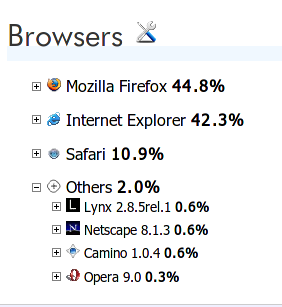Some years ago, I got an email which surprised me, to say the least. It bore the title “Dylan with no harp!”, probably in response to something I had written about that, and was from a certain César Díaz. Not something that happens every day, to be sure, that I’m contacted by one of Dylan’s former guitar players.
He wrote:
When I was his tech before I joined the band, I always made sure that there would be plenty of harmonicas for him to use, in minor keys, sharps and flats — you name it I had it.
After I left to have my liver transplant, the new tech never bothered to ask me how I handled Bob. Consequently he began giving Bob the same old harmonicas even though some would already be blown. I had a harmonica tester made by Hohner — a very simple device, but I could then tell if any of them were bad or defective. I heard around ’97 that Bob was throwing the harmonicas at the new tech — no need to wonder why!
I doubt that any back injury would prevent Dylan from ever using the harmonica again, to my knowledge it seems more a ”lack” of trust. Bob’s a creature of habits, and once he falls into a ”groove” he rarely changes, unless of course the same bad thing would happen time after time …
I only allowed a set of 7 harmonicas to remain for only three shows at the most! After that … I would always be concerned and would lay 7 new ones on the platter. He never complained to me about having a bad harmonica… It takes one to know one!
Thank you, César Díaz ®©
http://www.cesardiaz.com
I wrote back to him, asking him for permission to publish his mail — given that he had sent it to someone who ran a Dylan website, I assumed that might have been what he had in mind. I also hinted at the rumours that there should be some kind of contract preventing people in Dylan’s vicinity from saying too much in public. He answered:
Thanks Eyolf: As long as it is printed with your very same introduction, I cannot see anything wrong with it.
I don’t have anything against Bob and grew to like him quite a lot, it’s a shame that other musicians and people who, for a period of time, however lengthily, cannot tell when the gleam is gone. We all have jobs and relations that for any number of reasons can end at any moment, heck life’s that way, here today and gone this afternoon…
I for one never signed any contract with Dylan’s management concerning interviews or my own career. Bob of all people knows that the company you keep says a lot about you; he left home and came east to find his hero and quickly associated himself with a legend very much so as I did. I struggled with my pride and ability as a musician and sacrificed precious time for the likes of Stevie Ray Vaughan, Bob and many others. I knew it was my time to leave and that I was dying — I left without any kind of compensation except for clothes and guitars, hats and things that I could use. I was even told by his current manager that I was ‘not what he would call record company material’ — this coming from a person that could not play his way out of a paper bag, let alone be able to humble himself to become ‘the bag carrier’ as Victor Maymudes did.
Many of the people who have worked for Dylan in the past have a notion that they will return someday and that if they don’t say anything about their experience then they will have a better chance because they have kept their lips sealed, ‘loose lips sink ships’ they say… but I am no longer on that ship… I was given a new lease on life which cost $375,000.00. I had to sell many things I truly would have loved to keep, many came from Bob. To me his generosity in both allowing me to play in his Band and the gifts I’ve received throughout the years has been enourmous and I am very sure he appreciates the fact that I didn’t lean on him for any help. He called me right before I was to be operated and offered me his prayers. Things like that mean a lot to me.
We played the song ‘Oxford Town’ for the only time ever, in Oxford Mississippi. I am a man of color and that to me was the greatest honor. I speak the truth to the best of my recollection — some things have become hazy but for the most part I have no ill feelings concerning the way I was treated or what the press may have said, like ‘roadie turned guitarist’, ‘Dylan’s Puerto Rican roadie’ — maybe being Hispanic makes me a better tech — ‘A Ragtag Band that even included a member of the Crew’ … A lot has been said that I don’t much appreciate but people are entitled to have their opinions… I have mine.
More certain than death itself is the fact that I will never go back, not under the same circumstances. That moment was captured and frozen in time. I look ahead and like Dylan… I ‘Don’t look back’.
César Díaz
A short while later, César Díaz died, and I didn’t know what to do with his mails. They do contain some interesting details which may not shatter anyone’s foundations or change the world in any way, but hey, we’re all addicts, aren’t we — any little tidbit is interesting. And despite the slightly self-indulgent tone, I have grown fond of ‘Dylan’s Puerto Rican roadie’.
As I was cleaning up my desk today, I found my old printouts, and I figured it was time to pass them on. Raise a glass to César, and play Oxford Town one more time.


